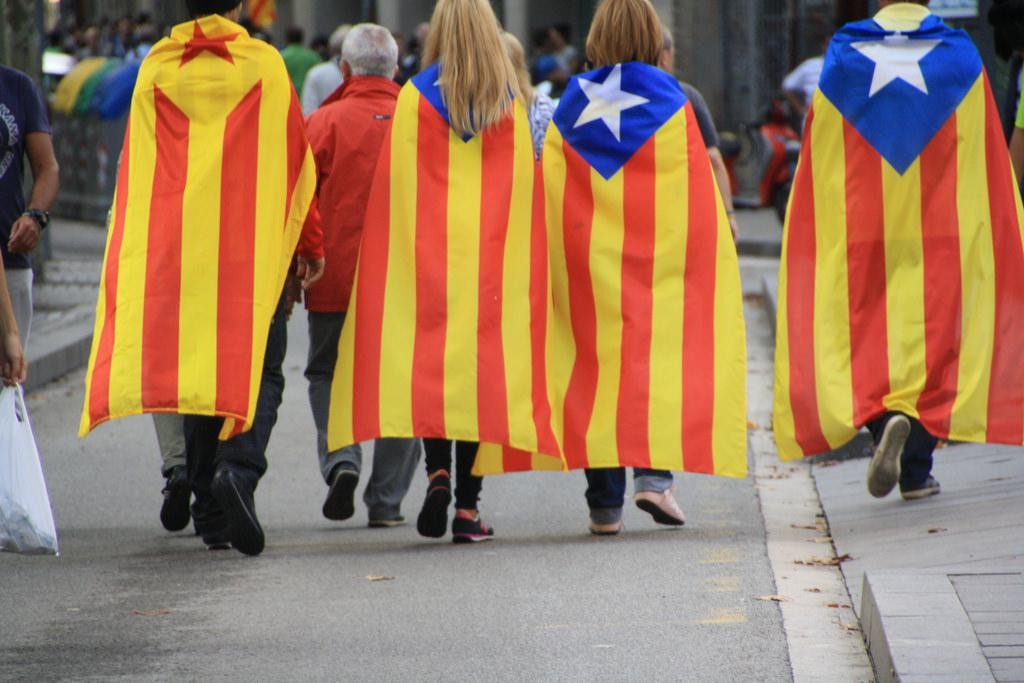The 90% of the 2.2 million people that took part in Catalonia’s referendum voted for the independence of the region. Only 7.8% voted against it. But the most relevant data is that only the 42.2% of the 5.3 million people entitled to vote went to the polls.
Contrary to what President Puigdemont said, the referendum day wasn’t peaceful and calm, not at all. It was full of violence and it will be remembered for the police charges against Catalan people.
Everything started in the morning, when the police, sent by the Government of Madrid, arrived to the polls in order to forbid people to vote and to seize ballot boxes. However, most of the Catalan people were already there before the police came. That’s how clashes started. Nevertheless, there wasn’t an angry and violent crowd against police, but common people that simply wanted to vote, even if the referendum was declared illegal by the Constitutional Court in Madrid.
The result was more than eight hundred injured and four hundred polls closed, which is the equivalent of around eight hundred thousand voters. The police fired tear gas and rubber bullets – illegal in Catalonia – at the unarmed protesters. Some shocking pictures show the assault on defenceless women and older people with several facial injures. In other photos the police charge firemen which are blockading a poll.
The Prime Minister of Spain Mariano Rajoy said that the policemen acted with “firmness and serenity”. And he continued: “We have done what we had to do. We have acted, as I have said from the beginning, according to the law and only according to the law. And we have shown that our democratic state has the resources to defend itself from an attack as serious as the one that was perpetrated with this illegal referendum. Today, democracy has prevailed because we have obeyed the Constitution.”
And instead, the President of the Generalitat of Catalonia, Carles Puigdemont said in response to the alarming events: “The image of the Spanish state has reached levels of shame that will stay with them forever.” And he continued: “On this day of hope and suffering, Catalonia’s citizens have earned the right to have an independent state in the form of a republic.”
Mr. Rajoy in the last few days said that there wouldn’t be polls, votes and the referendum in particular. However, the referendum was done and so the Prime Minister couldn’t keep his word. Moreover, he couldn’t not only find a peaceful solution to the conflict with Catalan people, but also he used the violence as the only way to keep order in his country. And by doing so, he has secured the hostility with Catalan people. He only managed to close some polls and to forbid some people to vote so that the approval of the referendum wouldn’t obtain the absolute majority.
By the way, we must not forget the weight of pictures in the modern world. The images show on one side a brutal violence dressed in black and on the other a peaceful but also fearful people who stand under the rain and under the truncheon beats for the right to vote.
This is particularly relevant in a 24/7 connected world, where everybody can see photos and videos of crying women and injured elders.
And in all this, the European Union remains silent, pretending that it’s just a Spanish issue, not relevant for others. Ms. Merkel expressed her solidarity to the Spanish Prime Minister, Mr. Rajoy.
Maybe it would be necessary to realize that this is not just a national issue but this matters to all the European countries. If the European Union really wants to preserve the integrity of the national territories and to prevent other splits it should do something more than express solidarity, like taking action on this and trying to get the two parties to the negotiating table. For now, the situation keeps still between the police violence and an illegal vote.



